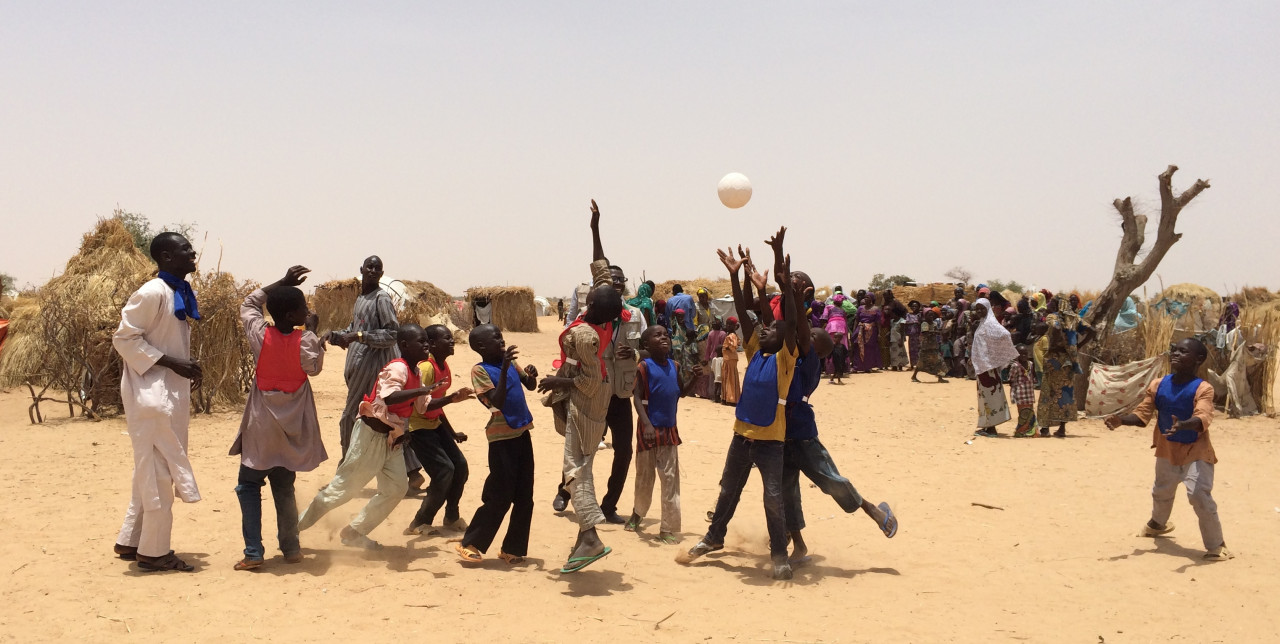20-06-2016 | di COOPI
The World Refugee Day in Niger
On the World Refugee Day, UNHCR reminds us that every minute 24 people in the world are forced to leave and to escape from their own homes. In 2015, for the first time in history, the number of escaping people exceeded 60 millions. Today, COOPI wants to focus on one of the crisis that might be forgotten: the crisis of Diffa region. On 3rd June we received the news of the umpteenth attack to Bosso town (in Diffa region, Niger) by the terroristic group Boko Haram. It is since 2013 that in this region the state of emergency has been declared: at present there are about 82.524 refugees from Niger (UNHCR data). It has been evaluated that during the last attack 50.000 people escaped leaving everything they had.
We talked about that with Marzia Vigliaroni, COOPI head of mission in Niger.
"In Diffa region, together with UNHCR and UNICEF, we operate in Sayam Forage refugee camp, the only camp of the zone completely aimed at the Nigerian refugees, which currently accommodates about 6.000 people".
What kind of help do we give them?
First of all, we bring a psychosocial support for the children and for their families. A team made up of psychologists, educators and entertainers gives them the possibility to have fun recreation times, that are so important for those children who are forced to live in this kind of precarious situation. Children are given not only a place to play but also a place where to metabolise ? individually or in a group ? their traumatic background.?
What do we do to preserve an everyday life semblance in the camp?
We enable children to attend the school regularly. We built three classrooms inside the refugee camp, we formed the teachers and every day we provide the pedagogic supervision thanks to the support of the Regional Direction of Primary Education.
Can the elder children pursue their studies too?
Yes, they can. We managed to guarantee to secondary-school Nigerian students the opportunity of keeping on attending the Anglophone curriculum. It has been possible thanks to a project of remote education financed by UNHCR that provides the development of a digital platform for online classes. Just a month ago, between 25th April and 12nd May, forty boys could go back to Kano (Nigeria) to pass the final exam and get the diploma.
Life in a refugee camp can be an alienating experience. How is the everyday routine of the people seeking refuge there?
People who escape from their home need indeed some cares and psychological support, but first of all they need a shelter, a place where to sleep. Together with UNHCR we made some shelters available to these people: inside those buildings families can find an adequate place to reset their everyday life. Usually, a family is made of about 7 persons and these shelters are big enough to allow them to live all together.
Is it difficult at present to see the end of this humanitarian emergency? How will COOPI continue its work in this region?
We will remain in Niger, trying to find a solution to the refugee crisis. We will continue supporting the population by answering to psychosocial needs, promoting children and young people's education, and spreading literacy amongst young people. The development and the use of new technologies will help us to reach better results. Furthermore, in the long-term future we will try to promote the development of Diffa region by working hard on projects focused on young people.




 Niger
Niger
